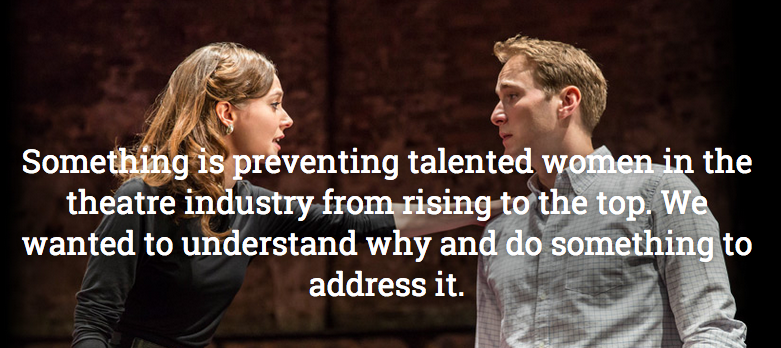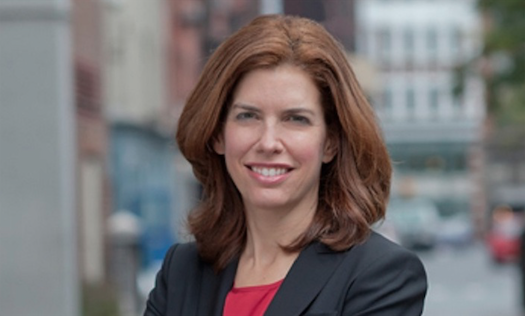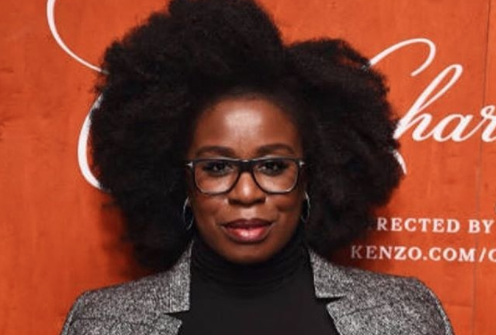Earlier this week, the theatre community in across the UK came together to discuss the problem of gender inequity on its stages. The numbers are just as bad over on that side of the Atlantic as they are in the US. Currently in the West End (the English equivalent of Broadway), only 29% of shows are directed by women, and only one show playing was written by a woman (and that is Mousetrap, which is over fifty years old.)
The meeting was convened by Advance, a project of the Tonic Theatre, run by director Lucy Kerbel, which she started in 2011 to address the gender disparity in the British theatre.
Advance brought together eleven British theatre leaders who wanted to change the problem of gender inequity, but didn’t know how to go about doing that. So Advance worked with each theatre for over six months to really dig in deep and research as to why these inequities were happening. They focused on the artistic side of the work, not the management with full institutional buy-in, to figure out a plan for each theatre to bring in more women. Each theatre started at a different point with a different question, and then came up with a plan. The work is being monitored by academics at the Royal Central School of Speech and Drama.
This seems to me like a radically different attempt to push for gender equity. It’s not a negative frame; it’s not someone coming in and saying, You’ve done a shitty job at this in the past, here are the numbers, let’s see what we can do about this. Rather, this is a really proactive attempt to bring in the individuals and the theatres to address each of their own needs. This seems to be the theatres themselves digging in and asking the hard questions and coming up with their own solutions. Even the description of what Advance is sounds radical: “Advance is working with England’s leading theatres, transforming their aspiration for gender equality into reality.”
I wondered if this plan could be applicable to other industries like film and reached out to Lucy to ask her thoughts. Here’s her answer:
“What feels particularly exciting about Advance is that it seems we’ve developed a tool that could be used by any number of art forms to address the under-representation of any group or demographic. So while the focus of the work we did was on gender equality and the context in which we did that was the theatre industry, the way in which we did that work could be applied to many other fields and matters. It would be hugely exciting (and hopefully beneficial!) to see it applied to the film industry so long as — and this is crucial — the will is there in the industry to create change. Advance will only work as a process if it is taken up by individuals who want to see a shift happening, but might not quite know where or how to get going without a bit of structure or guidance.”
One of the key points here is walking into the conversation believing that people want to see change happen, that people have good intentions and the belief that this problem CAN be solved. It’s not going to be easy, but the work is going to be worth it.
Lucy also commented on the biggest takeaway from Advance’s progress and what will happen next.
“Biggest takeaways are that the theatres that took part were not simply talking about gender equality, but actually doing something to get things moving. I think as an industry, we’d been guilty of a bit too much conversation and too little action! That’s not to say that gender equality shouldn’t be discussed at length, or that we shouldn’t seek to have a sophisticated understanding of why it persists, or what we could do about it — indeed these were central to the Advance process. But to really achieve change, this had to be complemented by a commitment to concrete and tangible shifts by those organisations best resourced and equipped to make them.”
Learn more about Advance.







